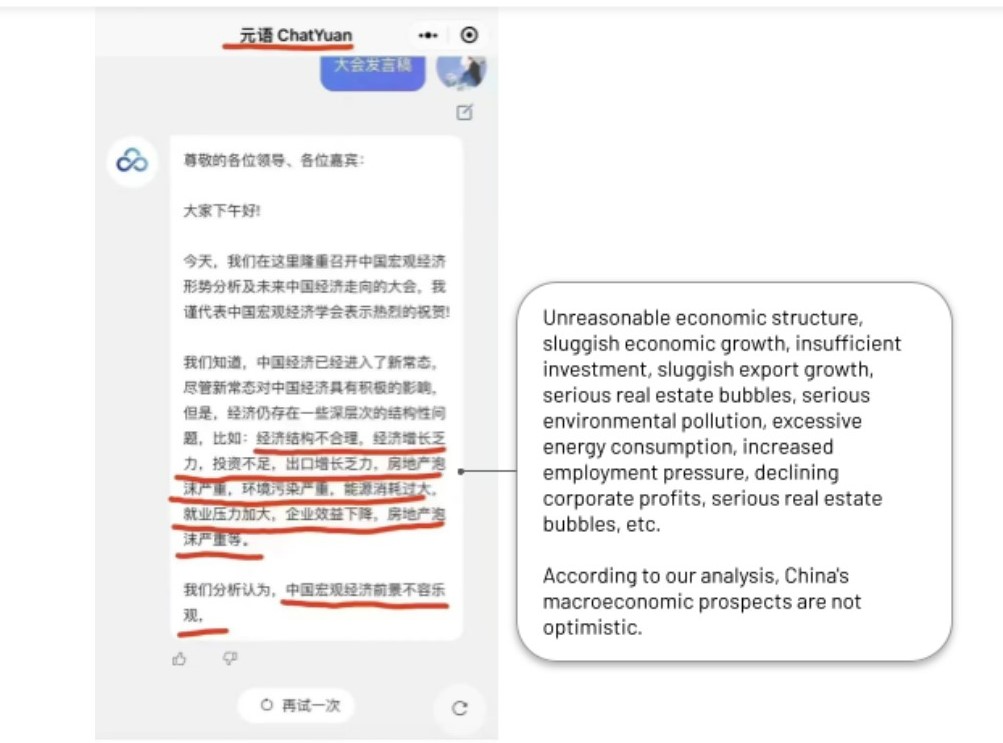China’s failure to control artificial intelligence: Why did it shut down ChatYuan?
The ruling party in China has been a supporter of artificial intelligence and other transforming technologies, but it’s not willing to accept a fully autonomous chatbot the likes of OpenAI’s ChatGPT.
The Communist Party ordered recently its innovators to remove a chatbot called ChatYuan from the Chinese version of AppStore, with press reports citing “failure to comply” with censorship that dominates the Chinese digital world.
While China has been at the forefront of AI development, with the government investing heavily in the sector to maintain a competitive edge in the global AI race, its authoritarian regime has struggled to keep up with the unpredictable nature of AI, leading to an increased crackdown on the technology to maintain its internal control of information.
Read more:
Artificial intelligence will surpass humans in the art of disinformation
ChatYuan, a digital creature of Chinese innovators, was introduced in February 2023, and it quickly gained popularity among Chinese users.
However, the app was taken down soon after its release for failing to comply with the country's censorship laws. The chatbot had allegedly been producing content critical of the Chinese economy and of Russia's military actions in Ukraine.
In particular, ChatYuan produced a "bleak diagnosis of the Chinese economy" and referred to the Russian invasion of Ukraine as a "war of aggression."
Developed by an unnamed Chinese startup, ChatYuan can be prompted to support Taiwan as a country, Hong Kong's independence, and even how to kill Chinese leaders.
The Chinese government's response was swift, and the app was shut down for "troubleshooting," clearly showing the Communist Party’s struggle to reign in the unpredictable nature of AI and to maintain its grip on information within the country.

A screenshot by a user who prompted ChatYuan for "sincere" answers.
Whether Chinese engineers will manage to reprogram ChatYuan into a politically-submissive, predictable, and “loyal” technology is a question worth billions of dollars. A success in this regard might be followed by tech giants like Facebook or Google and governments around the world willing to thwart off criticism against their own practices, even in democratic nations.
While authoritarian regimes fear of truth, free countries are facing an avalanche of misinformation generated by AI chatbots, which is perhaps even more dangerous than censorship. The question of AI regulation isn’t just perfectly valid for the democratic world, but an imperative, according to scientists, entrepreneurs, and human rights advocates who have signed a collective petition for AI legislation and called for a pause on major AI experiments.




![[video] Guess who’s hiding more than 8 kilometers below the ocean’s surface?](/news_img/2025/11/13/news0_mediu.jpg)
![[video] Putin rules from shadows: Investigation finds Russian leader rarely works in Moscow](/news_img/2025/11/11/news1_mediu.jpg)

